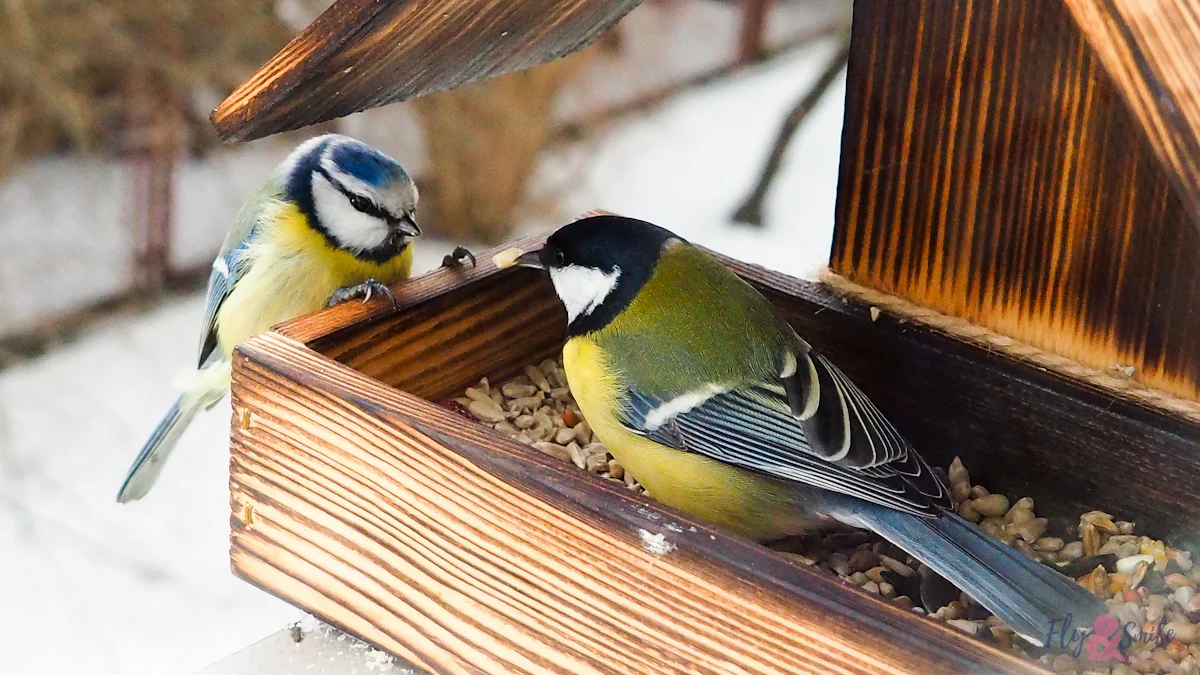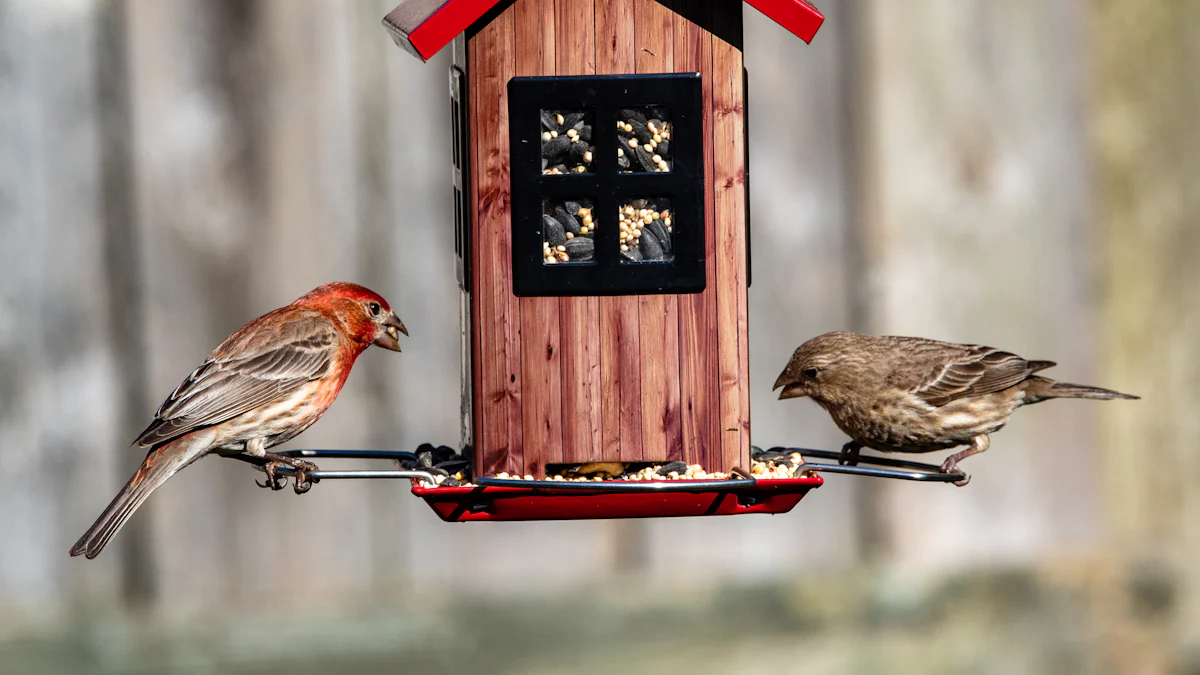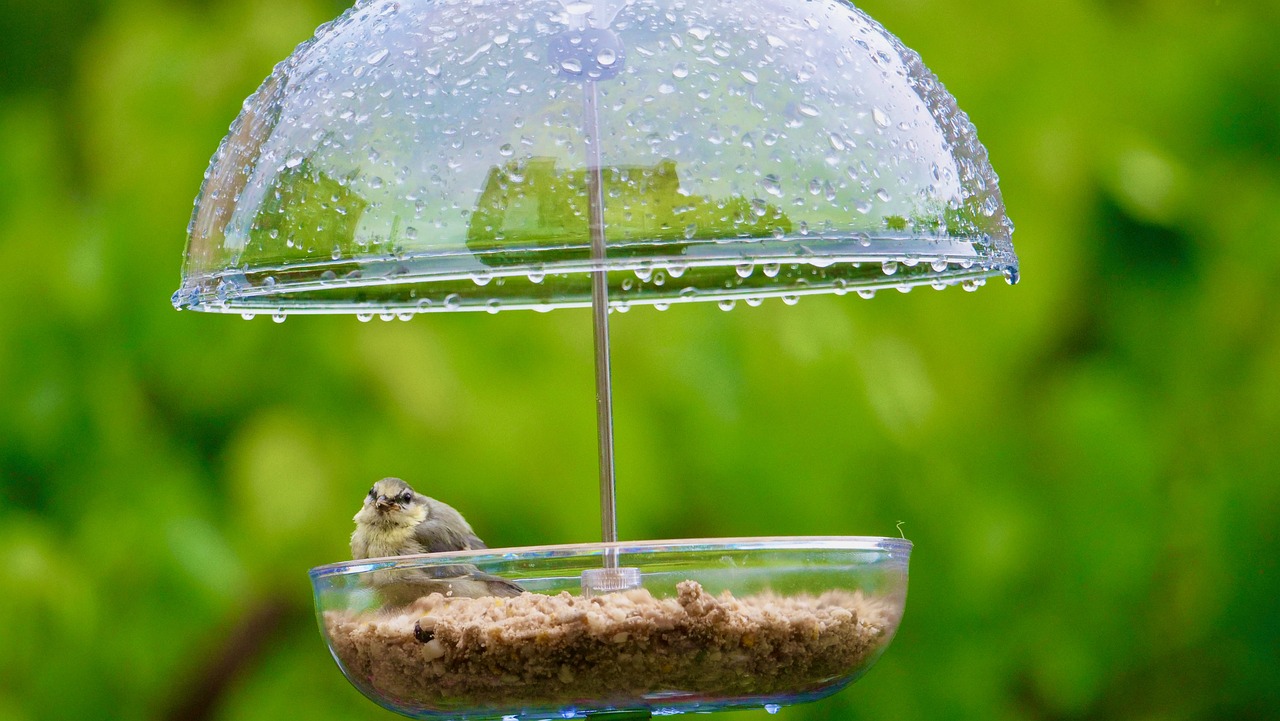
Feeding birds is a crucial task that requires attention to detail and care. Providing the right kind of nourishment can significantly impact bird populations and their well-being. Not only does bird feeding offer a source of sustenance during challenging times like migration and harsh winters, but it also allows humans to connect with nature on a deeper level. In this blog, readers will discover the common don'ts in feeding birds and learn how to avoid them effectively.
Mistake 1: Using the Wrong Type of Bird Feeder

When selecting a bird feeder, it is essential to consider the specific needs of different bird species. Inappropriate feeder types can limit the variety of birds that visit your yard, impacting the overall bird population negatively. To ensure a diverse avian community in your garden, it is crucial to understand how different bird species are affected by the type of feeder you choose.
To address this issue effectively, follow these steps on how to choose the right feeder:
-
Opt for feeders with adjustable perches to accommodate various bird sizes.
-
Select feeders with protective features to prevent seed spoilage and waste.
-
Choose feeder designs that allow easy access for birds while keeping larger pests at bay.
Maintenance Issues
Maintaining your bird feeder is as important as choosing the right one. Neglecting cleaning and hygiene can lead to disease transmission among birds and reduce their overall well-being. It's vital to establish a regular cleaning routine to ensure a safe feeding environment for our feathered friends.
Consider these tips for proper feeder maintenance:
-
Clean your feeders with a mild soap solution regularly.
-
Rinse thoroughly and allow feeders to dry completely before refilling them.
-
Inspect feeders for any signs of wear or damage, replacing them if needed.
Durability and Weather Resistance
Experts emphasize that durability plays a significant role in maintaining a healthy feeding station for birds. Investing in high-quality feeders that withstand various weather conditions ensures long-term benefits for both birds and humans. By prioritizing durability and weather resistance, you create a sustainable habitat that supports avian populations effectively.
Mistake 2: Offering the Wrong Food
Harmful Foods
When providing food for birds, it's crucial to be mindful of foods to avoid. Certain items can have detrimental effects on bird health and well-being. By understanding what not to offer, you can create a safer feeding environment that promotes the overall health of your feathered visitors.
Foods to Avoid
-
Artificially Flavored Seeds: These seeds often lack essential nutrients and may contain harmful additives.
-
Salty Snacks: Excessive salt intake can lead to dehydration and other health issues in birds.
-
Spoiled or Moldy Food: Consuming spoiled food can cause digestive problems and illness in birds.
Health Risks for Birds
Feeding birds inappropriate food can pose significant health risks. Birds rely on a balanced diet to thrive, and offering unsuitable options can impact their growth, reproduction, and overall vitality. It's essential to prioritize the nutritional needs of birds when selecting foods for your feeders.
Nutritional Needs
Understanding the nutritional requirements of different bird species is key to supporting their well-being. By catering to their seasonal preferences and ensuring a balanced diet, you contribute to the overall health of your avian visitors.
Seasonal Food Preferences
-
Winter Feeding: During colder months, high-energy foods like suet and black oil sunflower seeds are beneficial.
-
Summer Feeding: In warmer seasons, fresh fruits, mealworms, and nectar-rich flowers attract a diverse range of birds.
Balanced Diet for Birds
A balanced diet is essential for meeting the diverse nutritional needs of birds. Incorporating a variety of seeds, nuts, fruits, and insects ensures that birds receive the necessary vitamins and minerals for optimal health and vitality.
Mistake 3: Poor Placement of Feeders

Safety Concerns
Predators and Threats
Placing bird feeders in areas where predators lurk can endanger the birds that visit your yard. Predators such as cats and larger birds may view feeders as hunting grounds, posing a threat to the unsuspecting avian visitors. To ensure the safety of your feathered friends, consider these measures:
-
Hang feeders away from potential hiding spots for predators.
-
Position feeders at heights that are difficult for ground-based threats to reach.
-
Create barriers around feeders to deter unwanted visitors.
Safe Distances from Windows
Bird collisions with windows are a common issue when feeders are placed too close to reflective surfaces. Birds may mistake reflections for open spaces, leading to fatal impacts. To prevent window strikes and safeguard bird populations, follow these guidelines:
-
Place feeders at least three feet away from windows or use window decals to break up reflections.
-
Install external screens or netting around windows near feeding stations to create a physical barrier.
-
Adjust feeder placement seasonally based on bird behavior and migration patterns.
Accessibility
Easy Access for Birds
Ensuring easy access to food is essential for attracting a diverse range of bird species to your feeder. Birds prefer locations where they feel safe and have convenient access to nourishment. To enhance accessibility for birds, consider the following recommendations:
-
Provide perches near feeders for birds to rest while feeding.
-
Offer multiple feeding stations to accommodate different bird sizes and species.
-
Keep the area around feeders clear of obstacles or dense vegetation that may hinder bird movement.
Avoiding Human Disturbance
Human activity near feeding stations can disrupt bird behavior and discourage visits from local avian populations. Minimizing disturbances is crucial for maintaining a harmonious environment that supports natural feeding behaviors. Here's how you can avoid human interference:
-
Place feeders in quiet areas away from high traffic zones or noisy machinery.
-
Refrain from sudden movements or loud noises when observing birds at feeders.
-
Establish a consistent feeding schedule to help birds anticipate food availability without unnecessary disruptions.
By addressing safety concerns, ensuring accessibility, and minimizing human disturbance, you create an inviting space that promotes healthy interactions between birds and their environment.
Mistake 4: Neglecting Feeder Cleanliness

When it comes to maintaining bird feeders, cleanliness plays a crucial role in safeguarding the health of our feathered visitors. Neglecting feeder cleanliness can lead to the transmission of diseases among bird populations and attract unwanted pests to feeding stations. By implementing proper cleaning practices and preventive measures, bird enthusiasts can create a safe and hygienic environment that supports avian well-being effectively.
Disease Prevention
Common Bird Diseases
Regular cleaning of bird feeders is essential for preventing the spread of common bird diseases associated with unclean feeding stations. Studies have highlighted the link between dirty feeders and infections like house finch mycoplasma and trichomoniasis. By adhering to a consistent cleaning schedule, bird enthusiasts can mitigate the risk of disease transmission and promote the overall health of visiting avian species.
Cleaning Schedule and Methods
-
Daily Cleaning Routine: Establish a daily cleaning regimen using mild soap solutions to disinfect feeders thoroughly.
-
Bleach Solution: Periodically sanitize feeders with diluted bleach solutions to eliminate harmful pathogens and parasites.
-
Inspection: Regularly inspect feeders for signs of mold, dirt buildup, or seed clumping, addressing any issues promptly.
Attracting Pests
Rodents and Insects
Unclean bird feeders are magnets for pests like rodents and insects, posing additional challenges to maintaining a healthy feeding environment. To prevent infestations and protect birds from potential harm, it's essential to implement preventive measures that deter pests effectively.
Preventive Measures
-
Seed Spillage Control: Minimize seed spillage by choosing appropriate feeder designs that reduce waste and limit access for pests.
-
Cleaning Frequency: Increase the frequency of feeder cleanings during warmer months when pest activity is higher.
-
Natural Deterrents: Consider planting pest-repelling plants near feeding stations or using natural repellents to discourage unwanted intruders.
By prioritizing feeder cleanliness, implementing regular maintenance routines, and adopting pest prevention strategies, bird enthusiasts can create a welcoming habitat that promotes the health and vitality of their avian visitors while minimizing disease risks and pest-related issues.
Mistake 5: Ignoring Seasonal Changes

Seasonal Feeding Habits
Winter Feeding Tips
-
Provide high-energy foods like suet and black oil sunflower seeds during the winter months.
-
Ensure feeders are regularly filled to support birds during the colder season.
-
Consider adding a heated bird bath to provide water for birds when other sources may be frozen.
Summer Feeding Tips
-
Offer fresh fruits, mealworms, and nectar-rich flowers to attract a diverse range of birds in the summer.
-
Keep feeders clean and replenish food frequently to prevent spoilage in warmer temperatures.
-
Place feeders in shaded areas to protect food from direct sunlight and maintain freshness.
Migration Patterns
Supporting Migratory Birds
"Maintaining bird feeders throughout the year is beneficial for birds."
Bird enthusiasts play a crucial role in supporting migratory birds by providing consistent food sources along their journey. By offering nutritious foods and maintaining feeding stations year-round, individuals contribute to the well-being of these traveling avian populations.
Adjusting Feeding Practices
"Birds benefit from year-round access to bird feeders."
As seasons change, so do the dietary needs of birds. Adapting feeding practices based on migration patterns ensures that birds receive appropriate nourishment during different times of the year. By adjusting feeder locations, food offerings, and cleaning routines, bird enthusiasts can create a welcoming environment that sustains both resident and migratory bird species.
Avoid common bird feeding mistakes like overcrowded feeders and moldy seed. Implement practical solutions to support avian wellbeing with our smart bird feeders, designed to maintain optimal conditions. Explore our products at [HIXX SMART BIRD FEEDER] and share your experiences to foster a community of backyard birding enthusiasts. Discover resources to enrich your journey towards a thriving, bird-friendly habitat. Start your rewarding bird feeding adventure today.













